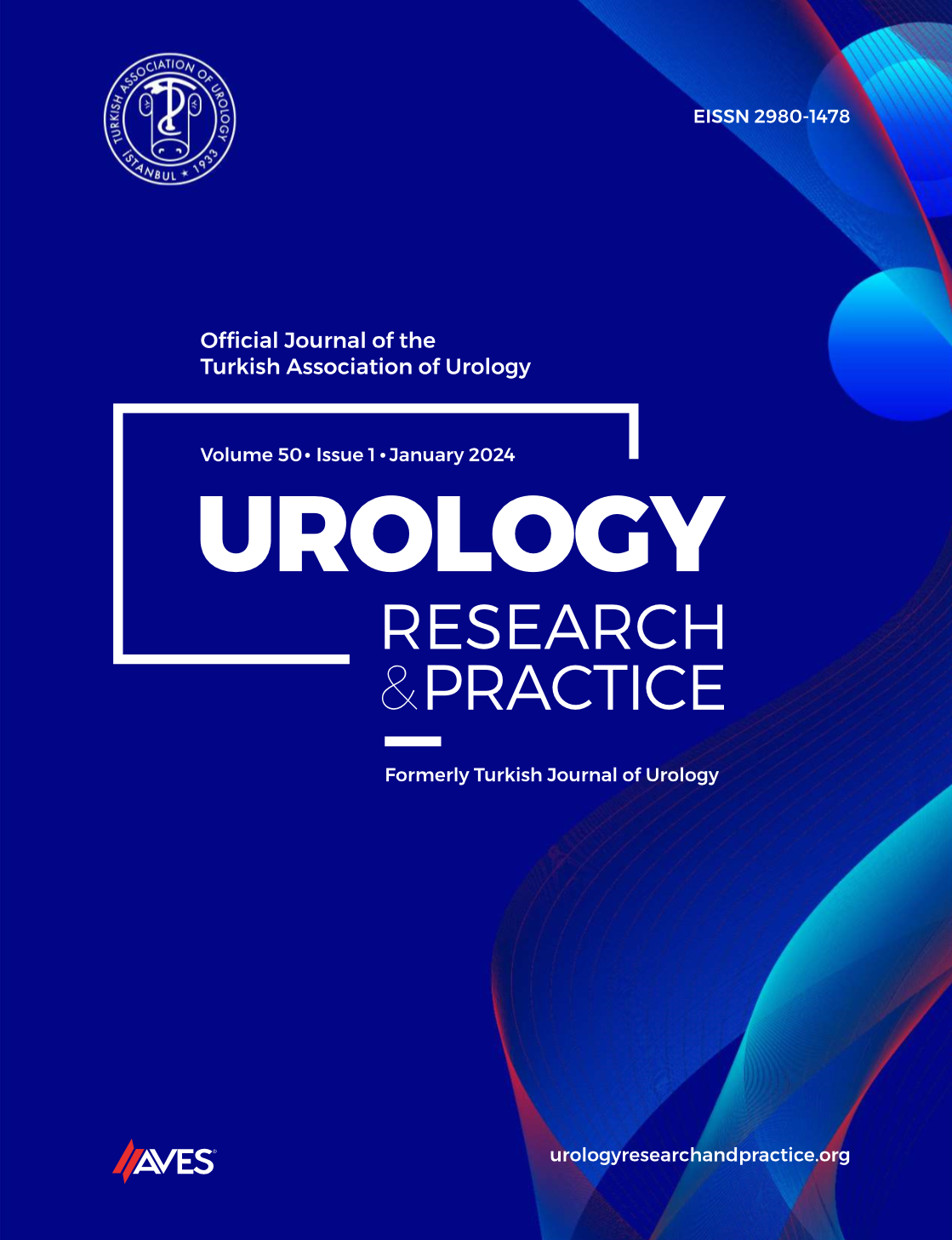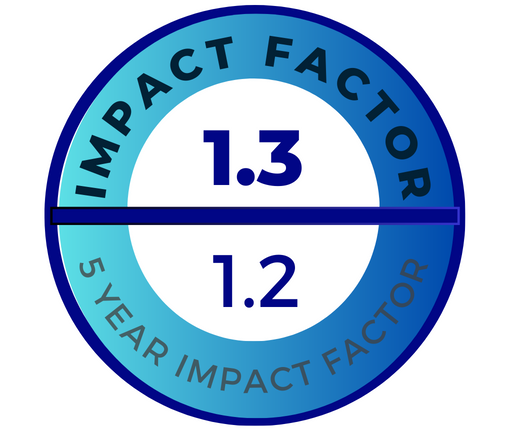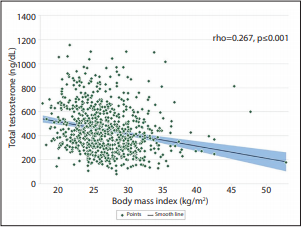Objective: The aim of this study was to invastigate the effect of body mass index (BMI) on semen parameters and reproductive hormone levels in infertile males.
Material and methods: Overall, 858 infertile male patients, aged between 18 and 55 years, referred to our infertility clinic were included in the study. Patients without risk factors, besides obesity, that could affect semen parameters or reproductive hormones were evaluated. Patients were separated into the following three groups: non-obese (<25 kg/m2), overweight (25–29.9 kg/m2), and obese (≥30 kg/m2). Age, semen parameters, and reproductive hormones were evaluated and compared among the groups. In addition, subgroups based on sperm concentration were compared.
Results: Total testosterone and testosterone-estradiol ratio negatively correlated with BMI (p<0.001). A positive correlation was observed between BMI and age (p<0.001). Even when adjusted for age, the decrease in total testosterone was significant in all groups parallel to the increase in BMI. Although age, prolactin level, and total testosterone had a significant relationship in univariate analysis, the only significant parameters were prolactin and total testosterone according to multivariate analysis. There were no significant differences between BMI and semen parameters. No significant difference related to BMI was observed among the infertile groups [severe oligospermia (34.3%), oligospermia (18.2%), and normospermia (47.6%)].
Conclusion: A significant negative correlation was observed between increasing BMI and total testosterone. No relationship was observed between BMI and semen parameters except progressive motility. Nevertheless, prospective longitudinal clinical trials with larger sample sizes involving weight loss are needed to understand the precise relationship of BMI with reproductive hormones and semen parameters in the same individual.
Cite this article as: Baydilli N, Selvi İ, Akınsal EC, Ertürk Zararsız G, Ekmekçioğlu O. How does body mass index affect semen parameters and reproductive hormones in infertile males? Turk J Urol 2020; 46(2): 101-7.

.png)


.png)
